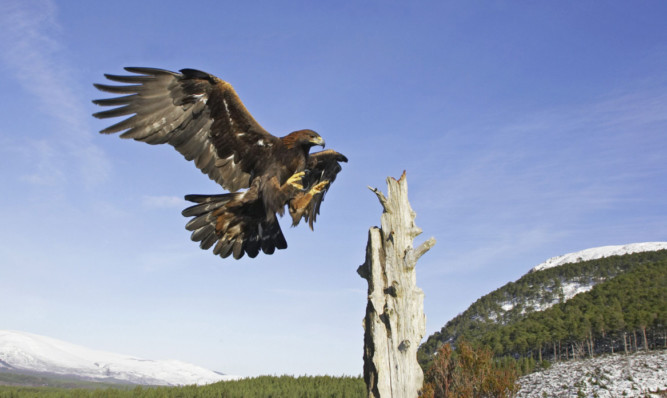A Tayside wildlife expert believes new licensing changes could begin to “turn the tide” on crimes against wild birds.
Alan Stewart, retired Tayside Police wildlife crime officer, said he is confident that Scottish Natural Heritage and Police Scotland “will not shirk from their responsibilities”.
SNH can restrict the use of general licences to trap and shoot certain wild birds where they have good reason to believe crimes have taken place.
Decisions will be made on the basis of strong evidence provided by Police Scotland and will be based on a civil standard of proof, rather than the criminal standard.
The move comes after Scotland’s minister for the environment and climate change, Paul Wheelhouse, asked SNH to consider how general licences could be restricted, as part of a number of measures aimed at reducing raptor persecution.
Mr Stewart, now an intelligence officer with the UK National Wildlife Crime Unit, said: “General licences, as their name suggests, are licences that can be relied on (without personal application for a licence) by an owner or occupier of land or someone authorised by that person to kill or take wild birds specified within that licence, for reasons specified and subject to a list of conditions also specified.
“Examples are live-trapping a carrion crow to conserve other wild birds or shooting wood pigeons to protect growing crops. The wording of these important changes means that not only may this withdrawal of the use of a general licence be made against an individual, but can be made in relation to an area of land.”
Mr Stewart said because most crimes committed against wild birds remain undetected, it follows that the most likely sanctions will be in relation to areas of land.
He added: “I suspect that if this sanction is triggered by a single incident, it is much more likely to be against an individual who has been seen committing a relevant crime.
“If against a piece of land, such as a farm or estate, the sanction is likely to be based on a recent incident backed by some degree of history of similar incidents, none of which can be pinned down to an individual but showing a clear course of criminal conduct.”
He added: “The fact withdrawal of general licences has been made retrospective to the beginning of 2014 shows the Scottish Government and SNH are well aware of the groundswell of opinion on raptor persecution and appreciate how difficult it is to achieve a conviction for these crimes.
“A few quick-time, sharp results might now begin to turn the tide. Since I’m aware of most if not all crimes committed in Scotland against raptors, there is no shortage to pick from since the start of 2014 and I am quietly confident that SNH and Police Scotland will not shirk from their responsibilities.”
